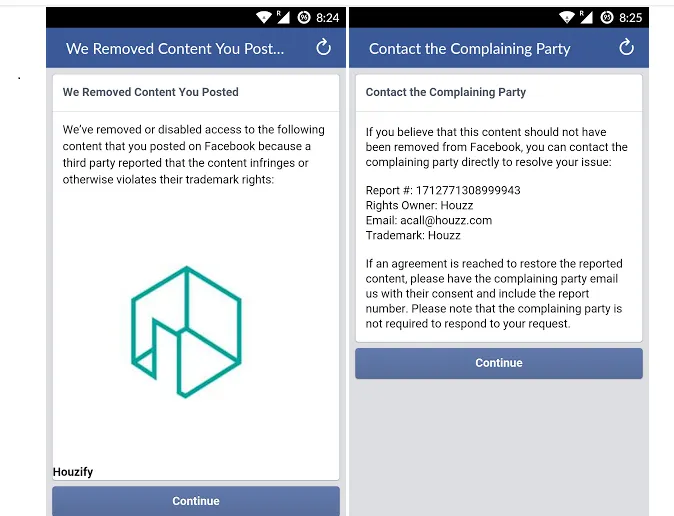When entrepreneurs get lawyered (Part-1)
When asked about the importance of legal work, most corporate professionals in India respond with a chuckle. This chuckle may also be accompanied by a shrug that communicates that they are utterly clueless but have resigned themselves to the long and time-consuming paperwork that law has come to be associated with.

Image credit: Shutterstock
In the world of entrepreneurs, where time is precious and difficult to allocate, it is more difficult to rationalise legal matters as important in the grand scheme of things.
But how profound is law for the success of a startup?
Consider the following recent events from March this year:
- Uber recently accused Ola for creating fake Uber accounts and using them for fake bookings. Uber is seeking $7.4 million in damages.
- Ironically, these are exactly the same charges Lyft levelled against Uber in 2014.
- Uber wasn’t alone in accusing Ola though; Jugnoo also claims to be a casualty.
- Uber Moto & Ola Bike, the bike-taxi service launched by Uber and Ola respectively in Bengaluru, was banned by the Karnataka government due to implied violation of the Motor Vehicle Act. Uber’s response was to reposition itself as a ride-sharing service on bikes, but that also hasn’t quite ended well.
In the last month alone, there seems to have been a dense minefield of legal battles just in the market of cab aggregators, a sector that has only a few dominant market leaders.
Preliminary research indicates that over a dozen startups across e-commerce, healthcare and pharmaceuticals are embroiled in legal tussles. Knowing the nature of the shadow economy in India, I wouldn’t be surprised if this number was actually in the hundreds.
In spite of our initial biases, it turns out that legal protection (or lack thereof) is inherently related to a company’s business model and proposition. In spite of being critical to nearly every company’s success, it continues to be misunderstood and under-appreciated.
In the first of our two-part series, we begin by diving into the murky waters of the world of law.
Name
Choosing a name is often the trickiest part for a startup. After all, every entrepreneur wants the name to showcase creativity while respecting legal norms. Very often startups have faced unnecessary legal action because they believed they were not infringing any trademarks by choosing a name that was spelt or pronounced differently. It is essential to respect intellectual property rights, and ensure that you are not violating anyone’s rights.
'Passing off' with regards to name-choosing in the field of intellectual property rights refers to cases where people are led to believe that you are another company. Here are certain ways to ensure that you aren’t violating any trademarks-
1. When you think of a name, the first thing to do is run a quick Google search of the name to ensure that no one else is using the same thing for an entity of the same nature or a similar kind, or in some cases even of a completely different nature. At this stage it is vital to keep in mind that even unregistered trademarks can be protected in India.
2. Check the company name registry and ensure that it hasn’t already been registered. You cannot get away with spelling the word differently. This has been seen in the ongoing Grofers case where they have been accused of trademark violation by Groffr as well as in the case of Roadrunnr, which has been forced into changing its brand name to 'Runnr'. This unnecessarily complicates things for the startup as well as for its customers, not to mention the 'menu costs'.
3. Check the domain name. If someone else is already using it, that means that it can be protected. Just because they’re using www.abc.com, it does not mean that you can use www.abc.in and get away with it.
Probably the most high-profile Indian consumer Internet firm that actually had to change its name for legal reasons is Zomato, after eBay initiated proceedings against it when it was formerly known as Foodiebay. As Zomato described the rebranding in their blog, the most useful takeaway might well be:
… one should not build a business on a name which has a 5% chance of getting screwed in the future.
However, with formal legal backing, a startup David can beat a Goliath, much like the Biblical tale, and the recent Houzify-Houzz dispute is an inspirational example.
Early last month, Houzify, a community of home owners and home design professionals (what most VCs would quickly label as a 'Houzz for India'), had its Facebook page taken down based on a complaint by US-based Houzz.

The Facebook complaint by Houzz was the climax of a battle which began in December 2015 when Houzz issued a Cease & Desist notice alleging trademark infringements.
However, with enough legal support in place and with the backing of the Indian startup ecosystem, Houzify made a triumphant return to Facebook.
Copyright and Intellectual Property
Intellectual Property (IP) issues are not limited to just the name of a startup or applications while starting up. It is crucial to be up to date with filings as well as all nuances of IP in day-to-day functioning to avoid legal hassles.
Recently, Stayzilla accused Oyo Rooms of trademark violation. Oyo Rooms had used Stayzilla’s name and trademark in their Google Adwords copy in a move to steal their traffic, which is both a trademark violation as well as against the policy of Google Adwords. Fortunately, the matter was solved amicably via Twitter. However, it goes to show that startups need to pay more attention to IP matters.
Oyo Rooms sued Zo Rooms, another budget hotel aggregator, alleging use and theft of ‘copyrighted material and software’ by employees who left Oyo Rooms to join Zo Rooms.
For some startups, IP hassles mean more damage than others.
Bluegape, a popular online merchandise store had to shut shop and pivot due to copyright issues with the sale of fan art on e-commerce websites.
Unable to resolve the issues the founders cited lack of clarity in the Indian Copyright Act itself as a reason for shutting down.
Here are certain ways to ensure that your IP is in safe hands while you’re busy scaling your venture:
• IP is considered an increasingly important business asset, especially for early-stage tech startups. One must keep a timely check on all the formalities and procedures with respect to not only their own IP but of competitors as well. This will ensure that someone else’s IP will not come in the way of a firm carrying out its business objectives.
• Some of the common mistakes made by entrepreneurs are the failure to effectively use non-disclosure agreements or properly register for trademarks. The basic groundwork, if not done properly, comes back to haunt the founding team at later stages in business.
• The rules governing patents, trademarks and copyrights are complex. In order to prevent ownership and enforceability issues, it is critical that startups engage quality legal services right at the beginning to avoid getting into legal humdrum at later stages.
• Ownership and enforceability of IP are usually scrutinised during an IPO as well as due diligence during a funding round or acquisition. Having a solid IP foundation is critical to optimising valuation and setting the stone right for a successful outcome.
• IP must not be restricted to filings and applications but also be made a critical part of all other contracts and documents such as employee agreements, contractor agreements etc.
While legal issues around name and IP can debilitate a startup’s prospects, they are not the only ones that every entrepreneur wished for more clarity on.
In the concluding post of our two-part series, we will look at how overlooking the law and regulatory framework can blight the prospects of highly successful firms, or even entire market categories.
(Disclaimer: The views and opinions expressed in this article are those of the author and do not necessarily reflect the views of YourStory)
This article was co-authored by Shubhankar Bhattacharya, VP at Kae Capital along with Arman Sood and Mishaal Nathani. Arman is the Co-Founder of Sleepy Owl Cold Brew Coffee, lawyer & sports enthusiast. He is also a passionate speaker and an avid sportsperson.
Mishaal is a 21-year-old law student who is passionate about entrepreneurship, writing, sports and music. Together Arman and Mishaal write under the brand name "Lawpreneur", a movement towards encouraging lawyers to use legal innovation and entrepreneurship to improve the existing legal structure.







